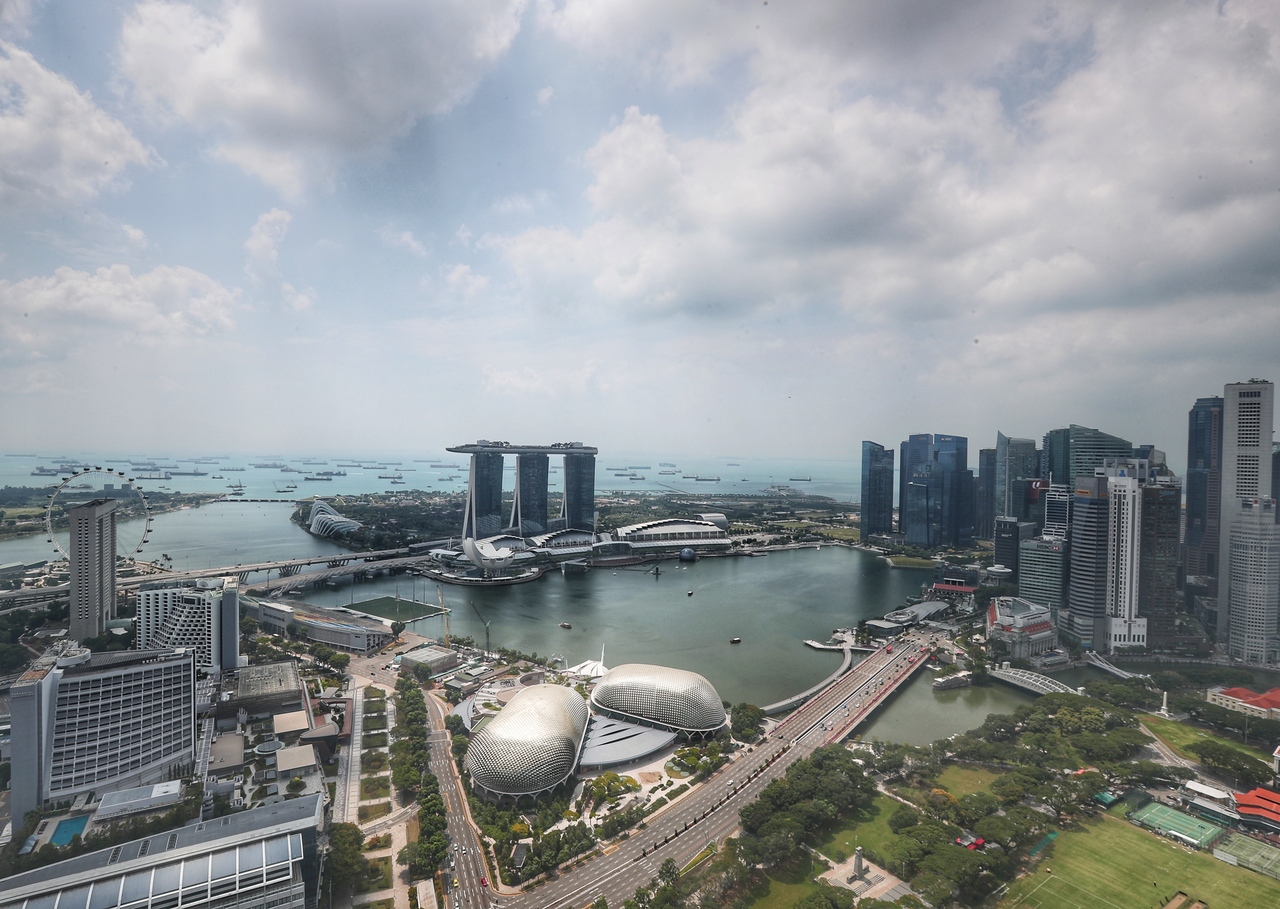Singapore core inflation slips deeper into negative in March, overall inflation falls to zero
Sign up now: Get ST's newsletters delivered to your inbox

Overall inflation came in at 0 per cent year on year in March, compared with 0.3 per cent in the preceding month.
ST PHOTO: KELVIN CHNG
Follow topic:
SINGAPORE - Core inflation contracted for the second straight month in March on a fall in private transport costs and a steeper decline in the cost of services, as businesses grappled with the impact from the coronavirus pandemic.
Core consumer prices, which exclude accommodation and private road transport costs, dropped 0.2 per cent from a year ago last month, more than the 0.1 per cent decline in February, according to figures released by the Monetary Authority of Singapore (MAS) and Ministry of Trade and Industry (MTI) on Thursday (April 23). Core inflation had turned negative for the first time in a decade in February.
All-items inflation came in at 0 per cent year on year in March, compared with 0.3 per cent in February. This means overall consumer prices hit their lowest level since January 2018.
Lower costs for taxi and private hire vehicles and telecommunication services, as well as larger declines in healthcare and holiday expenses drove the larger fall in services prices, said MAS and MTI.
The overall cost of services dropped 0.7 per cent year on year in March, steeper than the 0.4 per cent fall in February.
Private transport costs fell by 0.3 per cent in March, compared with 2.4 per cent in February, due to a fall in petrol prices and parking fees, as well as a smaller increase in the price of cars.
Food prices rose 1.5 per cent last month, compared with 1.6 per cent in February, as the prices of restaurant food and non-cooked food recorded smaller increases.
The costs of retail and other goods fell at a slower rate of 0.9 per cent last month, compared with 1 per cent in February, on account of smaller price declines for recreational goods and medical products.
The decline in electricity and gas costs eased slightly to 6.2 per cent in March, compared with 7.4 per cent in February, as the Open Electricity Market had a smaller dampening effect on electricity prices due to a slowdown in new take-up rates.

Accommodation costs rose 0.5 per cent in March compared with 0.4 per cent in February, boosted by a stronger pick-up in housing rentals.
With consumer prices falling as the coronavirus pandemic stalls business activity, the MAS last month lowered its 2020 forecast range for both core inflation and overall consumer price inflation to -1 per cent to 0 per cent.
MAS and MTI said on Thursday that oil prices should stay low for an extended period and will weigh on the prices of energy-related components of the consumer price index.
At the same time, international measures to contain the Covid-19 outbreak have led to supply chain disruptions, which could put some upward pressure on imported food prices, they noted.
The implementation of safe distancing measures and weaker labour market conditions locally will also dampen consumer demand, thus capping price increases for discretionary goods and services, they added.

